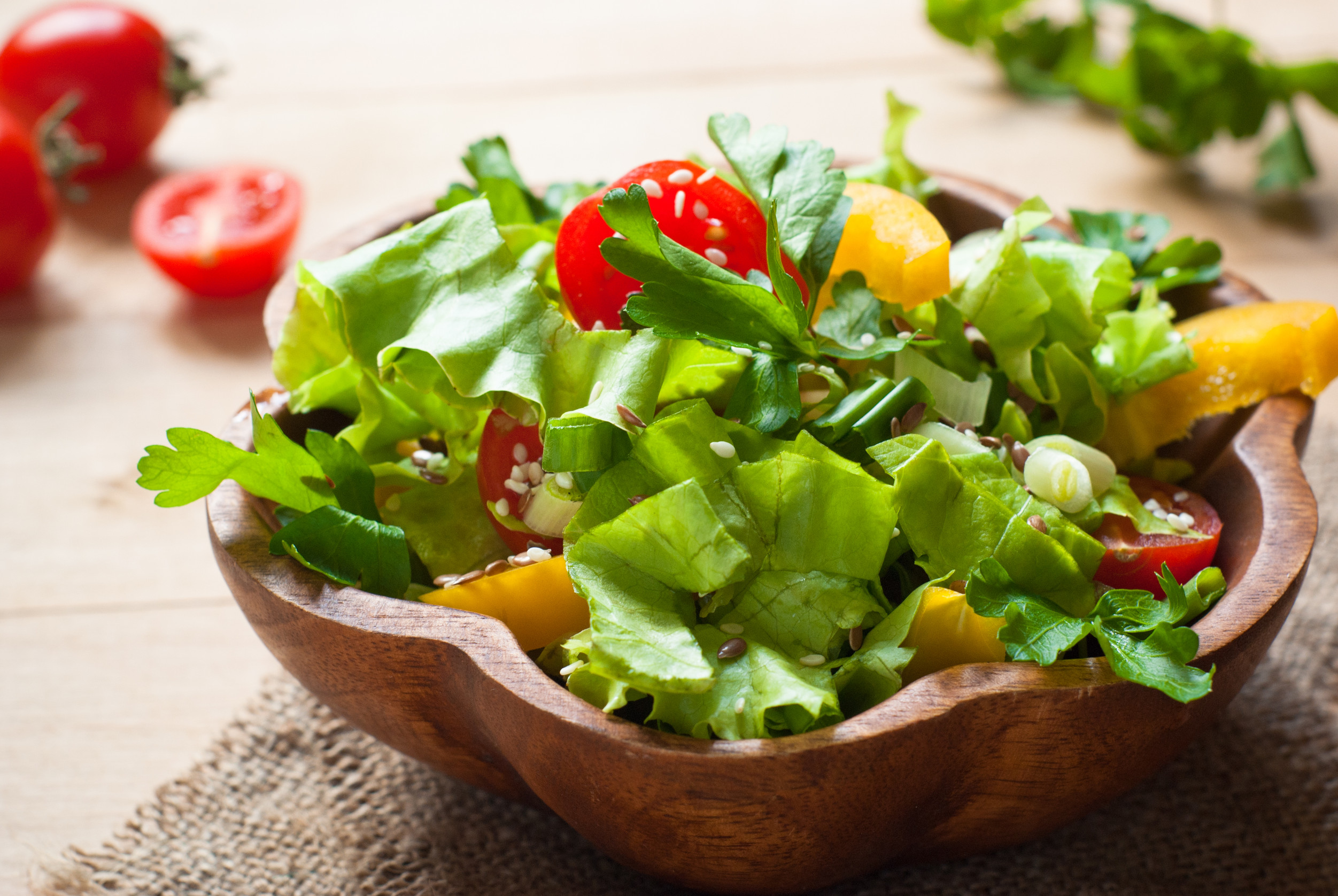
Food recalls and contamination scandals always come as a jarring wake-up call, especially when the culprit is something as innocent-looking as a bag of salad or a box of cereal. Grocery shoppers often walk the aisles of their favorite supermarket chains with complete trust, unaware that beneath the packaging could be dangerous bacteria, undeclared allergens, or even fragments of metal and plastic.
Despite modern food safety protocols, major chains like Walmart, Trader Joe’s, and Costco have found themselves linked to contaminated products. In a world where convenience and affordability often take precedence, the risks lurking in everyday grocery items can be unsettling.
1. Bagged Salad Mixes from Walmart and Aldi
Bagged salads may seem like a quick and healthy option, but several products have been pulled due to listeria and E. coli contamination. Walmart and Aldi were among the chains affected when health officials traced multiple illnesses back to pre-packaged leafy greens. These recalls often impacted products under brands like Fresh Express or Dole, making them easy to miss for an average consumer.
The bacteria found in these items can lead to serious complications, especially in pregnant women and the elderly. Such cases sparked renewed scrutiny of how salad greens are washed, packed, and transported.
2. Frozen Berries from Costco
Costco customers were urged to toss out frozen berries after testing revealed potential Hepatitis A contamination. Imported berries, particularly from certain countries with relaxed agricultural oversight, were the root cause. This led to multiple lawsuits and prompted Costco to reconsider its sourcing partnerships. Hepatitis A is a viral infection that can be transmitted through food and water, causing liver inflammation. The incident demonstrated the danger of even frozen foods, often assumed to be safer due to low storage temperatures.
3. Peanut Butter from Trader Joe’s
Trader Joe’s had to recall peanut butter after salmonella outbreaks were tied to one of its popular store-brand products. Dozens of people were hospitalized, many of them children, leading to national headlines and FDA investigations.
The contamination was linked to processing equipment that hadn’t been properly cleaned. Salmonella in peanut butter is particularly concerning because the product is shelf-stable and often eaten without heating. The recall also disrupted supply for weeks, leaving customers frustrated and concerned.
4. Ground Beef from Kroger
Ground beef sold at Kroger stores was found to contain strains of E. coli, triggering widespread recalls across multiple states. The bacteria was traced to a large meatpacking plant that had previously faced similar violations. E. coli in ground beef is especially dangerous because the bacteria can be distributed throughout the meat during grinding. Cooking meat thoroughly is essential, but many people undercook their burgers or meatloaf without realizing the risk. The incident reignited public debate over meat inspection standards in the U.S.
5. Baby Spinach from Whole Foods
Whole Foods pulled containers of organic baby spinach after random testing found listeria monocytogenes present in several samples. The contamination was detected before any major illnesses were reported, but the threat was significant. Listeria can lead to severe infections and even death, especially in vulnerable groups. While Whole Foods prides itself on health-conscious and organic products, the case showed that organic does not always mean safer. It also served as a reminder that produce cleanliness is not guaranteed by branding alone.
6. Canned Tuna from Dollar General
Canned tuna stocked at Dollar General locations had to be recalled due to under-processing that left the fish susceptible to bacterial growth. Botulism, a rare but fatal illness, became a key concern in the recall warning. The affected batches failed to meet thermal processing standards required to eliminate spores. Consumers were advised to avoid the product entirely, even if it looked and smelled normal. This incident revealed that even shelf-stable canned goods are not immune from contamination threats.
7. Cookie Dough from Nestlé at Major Supermarkets
Nestlé’s refrigerated cookie dough was pulled from grocery chains like Target and Safeway due to the risk of rubber pieces being mixed into the dough. Consumers reported finding blue rubber fragments in the product after baking. While there were no injuries, the potential choking hazard and manufacturing lapse were alarming. Nestlé initiated a voluntary recall and overhauled some of its quality control procedures. The story served as a reminder that contamination is not always microbial—it can be physical, too.

8. Romaine Lettuce from Multiple Chains
Romaine lettuce has been linked to several high-profile E. coli outbreaks over the last few years, impacting stores like Costco, Walmart, and Safeway. In one particularly widespread case, the CDC advised consumers to avoid romaine entirely until the source was identified. Investigations pointed to contaminated irrigation water on farms in California and Arizona. The recall led to thousands of pounds of lettuce being destroyed and sales plummeting for months. These events highlighted the complexities of tracking produce origins and maintaining safety in mass distribution.
9. Ice Cream from Blue Bell Sold at Various Chains
Blue Bell Creameries issued a massive recall after listeria was found in several of their ice cream products sold across grocery chains like H-E-B and Publix. Several deaths and dozens of illnesses were linked to the contamination. The company was forced to shut down production plants and pay millions in legal settlements. It became one of the most sobering examples of how contamination can go unnoticed for years. Public trust in the brand took a serious hit, with long-term sales suffering as a result.
10. Raw Chicken from Perdue and Tyson
Chicken products from brands like Perdue and Tyson—sold at chains like Safeway, Albertsons, and Walmart—were recalled due to contamination with metal shards and plastic pieces. These materials were accidentally introduced during processing, possibly from broken machinery. Injuries were reported, including cuts in the mouth and chipped teeth. While the recalls were handled swiftly, it underscored the importance of equipment maintenance in meat processing facilities. Consumers began questioning how foreign materials could make it past inspections.
11. Cereal from Kellogg’s at Target and Walmart
Kellogg’s Honey Smacks cereal was linked to a salmonella outbreak that sickened dozens across the country. The cereal was sold at major retailers like Target, Walmart, and Kroger before being removed. Tests revealed that the contamination may have occurred at the manufacturing level, though the exact cause was never publicly confirmed. Parents were particularly alarmed, as children were the primary consumers of the product. The FDA and CDC issued a rare national alert urging people to throw the cereal away, even if they had already opened the box.
12. Onions Distributed to Multiple Chains
Large batches of onions were pulled from stores like Trader Joe’s, Giant Eagle, and Food Lion after they were found to be contaminated with salmonella. The infected onions were traced back to farms in California and Mexico. Because onions are often used in a wide variety of foods, the outbreak led to a ripple effect of secondary recalls. Consumers who bought premade salads, salsas, and even sandwiches had to check labels to avoid risk. It demonstrated how a single contaminated ingredient could impact an entire supply chain.
The Safety Of Your Food Is Always A Priority
Food safety can never be taken for granted, even in the biggest grocery stores with trusted brands. These contaminated items—ranging from fresh greens to frozen berries and even canned goods—remind consumers to stay alert, check recall notices, and follow proper food handling at home.
The promise of a safe, convenient grocery experience sometimes masks the risks embedded in large-scale food production. For those looking to minimize danger, awareness and caution remain the best defense. Have a thought or memory about a food recall that impacted you? Drop a comment below and share your experience.
Read More
Quietly Kept Secrets About Food That Are Making Us All Sicker
10 Things You Should NEVER Do in the Grocery Store That You Probably Already Have
The post 12 Foods That Were Found Contaminated in Major Grocery Chains appeared first on Everybody Loves Your Money.







